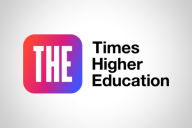You have /5 articles left.
Sign up for a free account or log in.
Some random observations on the economics of digital information:
- Mary Minow has written up contract language that authors can use in book contracts to specify that they reserve the right to authorize library lending of digital copies of their book. While it’s likely the average author would encounter strong resistance from publishers and their contract gnomes, and writers have very little clout in contract negotiations with big trade publishers, it’s a nice little statement that could at least indicate that a writer feels libraries are worth sustaining in a digital era. All of the major trade publishers have told libraries they either cannot loan their ebooks, or will have to pay much higher prices for them. The copyright-holding authors are not consulted about these decisions.
- Some, of course, would prefer that copyright last forever and be enforced ruthlessly. The Authors Guild, in its suit against the Hathi Trust, argues that libraries basically have no fair use rights. I’ve been following some of my favorite librarian-copyright specialists’ tweets as they read the latest filing and am looking forward to their analysis.
- On a happier note, the recently-released Code of Best Practices in Fair Use for Academic and Research Libraries is full of good advice, and a Directory of Open Access Books has just been launched by the OAPEN Foundation. The DOAB will be a welcome companion to the DOAJ or Directory of Open Access Journals.
- The Research Works Act is dead. Word about this proposed legislation that would forbid public funding agencies from requiring authors to deposit their published research results within a year of publication (as the National Institutes of Health has done successfully for several years) seemed to gather momentum from the SOPA/PIPA mass protests. Within hours of Elsevier announcing it no longer supported a bill that would never pass, its Congressional supporters pulled the plug, making it clear who had been calling the shots all along. But Elsevier made it clear that, while the company pulled support from this legislation, it still opposes requiring public access to the published results of federally funded research, so expect this zombie bill to reappear under another name and bill number.
- Google started using its new privacy policy today, meaning your searches and connections on their myriad of digital properties can influence one another. At Wired, Tim Carmody reflects on what it feels like to delete one’s history and how much your searches can say about you, which is why libraries have been defenders of privacy. (In fact, Google retains your history anyway – but you can minimize how much it can influence your search results.) But these changes might make people a little bit more aware of what’s going on in our digital world.
Old media companies are working hard to disable digital capabilities that they feel endanger their existence, and are even trying to design a future without things they never really liked in the first place – public libraries, for example. Recently it seems that, in their attempts to create a fully licensed world, they are showing their hand, and it's creating a strong tide of resistance. Even the creepy changes in Google and Facebook may lead to a backlash against companies that sell personal information so that Target can find out a teenager is pregnant before her parents know.
Then again, it sometimes seems we’re being offered a Faustian bargain we can’t refuse. Since I deleted my Facebook account, I have relied on Twitter for those tantalizing links other people post. Twitter has just inked a deal to sell our Tweets for marketing purposes.
Guess where I found that out.





